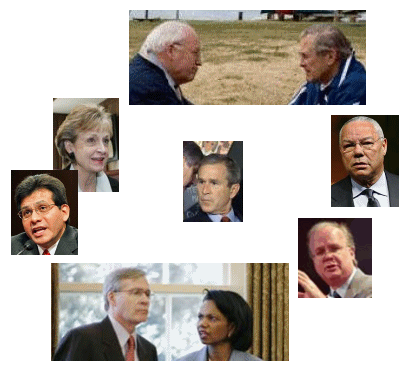President Obama and Dick Cheney conspired on Thursday to propagate a myth. The myth is that we lived through an eight-year period of Bush-Cheney anti-terror policy and now we have entered a very different period called the Obama-Biden anti-terror policy. As both Obama and Cheney understand, this is a completely bogus distortion of history. The reality is that after Sept. 11, we entered a two- or three-year period of what you might call Bush-Cheney policy. The country was blindsided. Intelligence officials knew next to nothing about the threats arrayed against them. The Bush administration tried just about everything to discover and prevent threats. The Bush people believed they were operating within the law but they did things most of us now find morally offensive and counterproductive.
The Bush-Cheney period lasted maybe three years. For Dick Cheney those might be the golden years. For Democrats, it is surely the period they want to forever hang around the necks of the Republican Party. But that period ended long ago. By 2005, what you might call the Bush-Rice-Hadley era had begun. Gradually, in fits and starts, a series of Bush administration officials — including Condoleezza Rice, Stephen Hadley, Jack Goldsmith and John Bellinger — tried to rein in the excesses of the Bush-Cheney period. They didn’t win every fight, and they were prodded by court decisions and public outrage, but the gradual evolution of policy was clear.
From 2003 onward, people like Bellinger and Goldsmith were fighting against legal judgments that allowed enhanced interrogation techniques. By 2006, Rice and Hadley brought Khalid Shaikh Mohammed in from a secret foreign prison to regularize detainee procedures. In 2007, Rice refused to support an executive order reviving the interrogation program. Throughout the second Bush term, officials were trying to close Guantánamo, pleading with foreign governments to take some prisoners, begging senators to allow the transfer of prisoners onto American soil…
Obama has embraced the Afghan surge, a strategy that was brewing at the end of the Bush years. He has stepped up drone activity in Pakistan. He has promoted aggressive counterinsurgency fighters and racked up domestic anti-terror accomplishments. As for the treatment of terror suspects, Jack Goldsmith has a definitive piece called “The Cheney Fallacy” online at The New Republic. He lists a broad range of policies — Guantánamo, habeas corpus, military commissions, rendition, interrogation and so on. He shows how, in most cases, the Obama policy represents a continuation of or a gradual evolution from the final Bush policy.
What Obama gets, and what President Bush never got, is that other people’s opinions matter. Goldsmith puts it well: “The main difference between the Obama and Bush administrations concerns not the substance of terrorism policy, but rather its packaging. The Bush administration shot itself in the foot time and time again, to the detriment of the legitimacy and efficacy of its policies, by indifference to process and presentation. The Obama administration, by contrast, is intensely focused on these issues.”
Obama has taken many of the same policies Bush ended up with, and he has made them credible to the country and the world. In his speech, Obama explained his decisions in a subtle and coherent way. He admitted that some problems are tough and allow no easy solution. He treated Americans as adults, and will have won their respect. Do I wish he had been more gracious with and honest about the Bush administration officials whose policies he is benefiting from? Yes. But the bottom line is that Obama has taken a series of moderate and time-tested policy compromises. He has preserved and reformed them intelligently. He has fit them into a persuasive framework. By doing that, he has not made us less safe. He has made us more secure.

-
Harriet Miers and Alberto Gonzales were more like an echo chamber than advisers – playing little or no part in the decision making processes.
-
Karl Rove was a popularizer and a strategist, but not much of an adviser. …
-
Colin Powell was a "figurehead," not because he’s African American, but because he was a General. Cheney/Neocons hated the interference of the State Department, so they put a soldier in the position. Powell tried to give good counsel, but never really had the ear of the President or [more importantly] the top guns…
-
Dick Cheney and Donald Rumsfeld, who had been together in one form or another for 30 years, both in the Neocon orbit, predetermined to attack Saddam Hussein at the earliest juncture.
-
Condi Rice and Steven Hadley, Conservative Republicans, but rational – not part of the AEI/PNAC Cabal – neither of them the in the bulldog category.
We could count on almost universal support back then, because everyone understood the environment we were in. We’d just been hit by a foreign enemy – leaving 3,000 Americans dead, more than we lost at Pearl Harbor. In Manhattan, we were staring at 16 acres of ashes. The Pentagon took a direct hit, and the Capitol or the White House were spared only by the Americans on Flight 93, who died bravely and defiantly.
When Cheney lambastes the change in security policy, he’s not really attacking the Obama administration. He’s attacking the Bush administration. In his speech on Thursday, he repeated in public a lot of the same arguments he had been making within the Bush White House as the policy decisions went more and more the other way.
Sorry, the comment form is closed at this time.